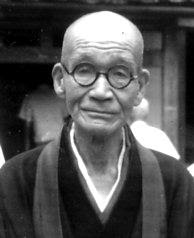.
.
You cannot depend upon anybody.
There is no guide, no teacher, no authority.
There is only you
- your relationship with others
and with the world
- there is nothing else.
When you realize this,
it either brings great despair,
from which comes cynicism and bitterness,
or, in facing the fact that you and nobody else
is responsible for the world and for yourself,
for what you think,
what you feel,
how you act,
all self-pity goes.
.
~ Jiddu Krishnamurti
~ Jiddu Krishnamurti
.

































